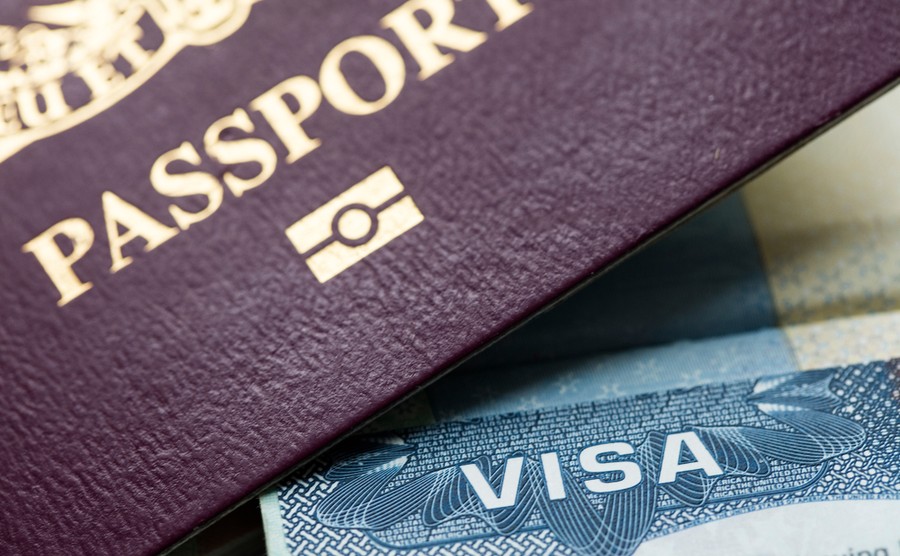Determined to start a new life on the other side of the Atlantic? Or perhaps you’re going even further, to the lands Down Under? Although all the planning involved can be daunting, even the longest journey starts with a single step. So, what are the first steps for long-haul emigration to the USA, Canada, Australia or New Zealand?
Check the ‘occupations in demand’ list
Strong fences make good neighbours, and there is no doubt that the countries many of us most want to emigrate to, have strong immigration rules. So whether you’ve set your sights on North American or an Antipodean destination, your chances of getting a visa to live and work there will dependent largely on what you can bring to the party. If you have a skill in a sector with a shortage of workers, your chance of getting a work visa improves.
In one form or another, Australia, New Zealand, Canada and the US all have lists of occupations in demand. This is often called a ‘skills shortage list’.and the UK has one too. The list shows areas of industry or employment where they need foreign workers to plug the gaps. These are often broken down regionally, so your application might be to a regional authority.
Download and save the Currency Guide to Emigration
Applications for a work visa, often termed ‘skilled migrant visa’, are usually assessed using a points-based system. A minimum score is required for eligibility. Applicants are awarded points based on their age, education, language, connections with the country and crucially their skills/employability. If your skill is in demand or on the shortage list, you’ll get more points.
Some countries have an online checker, so you can assess your chances early. If you’re on the edge you can try to boost your score. For example, moving to Canada, check the Comprehensive Ranking System tool. Maybe you could brush up your school French and take a test to improve your chances?
Register your interest with the immigration department of your chosen country or region. They’ll be able to match your skills with opportunities and send you email updates.

US hopefuls will probably be making a trip to the US Embassy in London (William Barton / Shutterstock.com)
Emigration when over age
Age is key factor too. You need to be 55 or under to be considered for a skilled migrant visa in New Zealand, while in Australia you must be under 45. Canada and the US are more flexible.
However, if you’re over those ages don’t give up. There are other visa options. The most likely route to getting permanent residency across the pond or in Australasia is through an investment visa, with several options usually available. In New Zealand, as they point out, the objective is to: “better attract experienced, high-value investors who will bring growth opportunities to New Zealand businesses.” With an upper-age limit of 65, see their investor migrant requirements here.
For those with offspring living legally there, New Zealand also offers a Parent Retirement Resident Visa, for an investment in New Zealand of NZD1million (around £520,000). Bear in mind, that’s an investment, not a cost, and should eventually gain you money!
Other countries will have similar, so do check them out. Alternatively, engage a visa specialist to do it for you.
Contact a visa specialist
Using an immigration expert may be worthwhile. Indeed some countries will only work with a licensed intermediary. Either way, it should make the whole process easier and less stressful for you, if considerably more expensive.
Whichever country you are considering, you should have a choice of qualified immigration lawyers. Only work with a firm that is licensed and/or registered by the relevant government authority. In Australia, this is the Migration Agents Registration Authority (MARA), in New Zealand the Immigration Advisor’s Authority (IAA), while in Canada agents should be on the Regulated Canadian Immigration Consultants (RCIC) register and the US has the American Immigration Lawyers Association (AILA).

A British passport and visa
Hiring a registered visa specialist – often described as migration agents or migration advisors – can bring peace of mind and save you time and stress. Crucially, because they understand the system and what does and doesn’t work, they will make sure your application is as strong as it can be. They can, therefore, save their own fees many times over by giving you the best chance of getting a visa approved.
Time-scales and costs for long-haul emigration
The visa timeline is what usually decides when you can realistically leave our shores and make the big move. Typically, it is a case of months rather than weeks. As an example, Australia’s government website currently quotes five months to process and grant a permanent skilled worker visa. In New Zealand, most permanent visas take between three and five months.
There will be costs involved in the visa process too – fees to cover the services of your visa specialist plus fees to the relevant government for the cost of the visa application. You also need to think about funds to cover your air fare and living costs when you first arrive. This will include accommodation if you don’t have a home there, as well as any removals or storage costs.
While Britons used to be nicknamed the ‘ten pound poms’ for the cost of emigration to Australia, you should probably be building a warchest closer to £10,000 for your move.

Could your pension stretch further overseas?
Savings and pensions
Don’t leave it till the last minute to think about your personal finances and any reporting obligations. It’s worthwhile arranging a consultation with a financial advisor, especially if you have a diverse portfolio of assets and investments, some of which might need re-structuring or transferring offshore. This could be the case with any pensions you have.
It’s a good time to acquire a forecast for your state pension, noting that UK state pensions are frozen on departure from the UK for expats in Australia, New Zealand and Canada. This is not the case in the USA, where British expats receive the same annual increases as UK residents.
Nearer the time to your departure, you will be obliged to tell HMRC and the Department of Work and Pensions that you are leaving the UK and will no longer be a UK tax resident, and similarly when you arrive in Australia, New Zealand, USA or Canada, you must register a tax resident there.
Read more about how your overseas pension could stretch further
Take care of your currency
At some point you’ll need to transfer money to your new country of residence. Ongoing, you may need to receive regular payments from the UK, such as your monthly pension or rental income.
Speak to your trader at Smart Currency, or open an account if you haven’t already. Tell us about your emigration plans and we will happily discuss ways of helping you to exchange and transfer funds. They offer a more personal service than high street banks, with more competitive exchange rates and clever solutions for protecting your money from exchange rate movement.





















